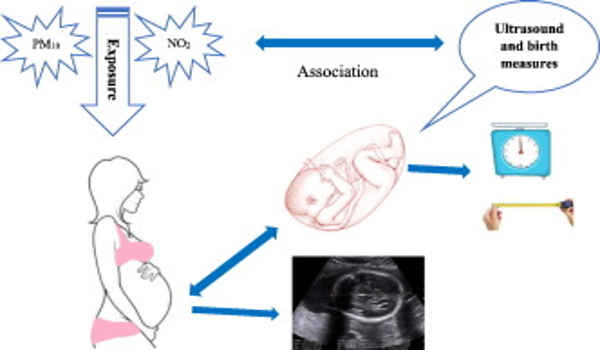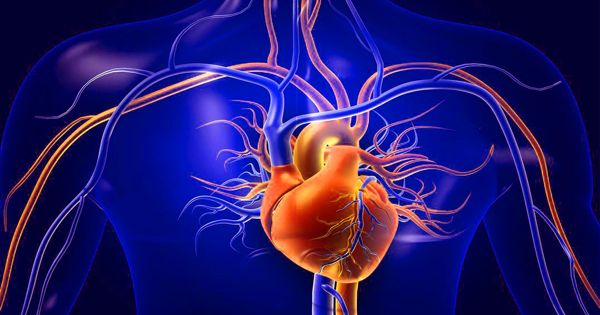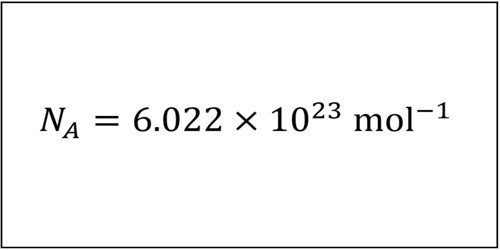Maternal exposure to air pollution during pregnancy has frequently been linked to negative effects on the newborn’s health. There have, however, been very few studies on the subject. According to a recent study, the early and late months of pregnancy are the most vulnerable to air pollution.
Air pollution, according to recent studies, has an effect on the thyroid. Thyroid hormones are necessary for regulating fetal growth and metabolism, as well as for neurological development. Thyroxine (T4) is the main thyroid hormone in circulation, and TSH is the thyroid-stimulating hormone. At 48 hours, newborn babies have a heel prick test to determine the levels of thyroxine and TSH in their blood.
In fact, if these thyroid hormones are out of balance, the risk of developing serious diseases increases. As a result, “this study set out to analyze the relationship between atmospheric pollution during pregnancy and the level of thyroxine in the newborn,” explained Amaia Irizar-Loibide, a researcher in the Department of Preventive Medicine and Public Health at UPV/EHU.
Maternal exposure to air pollution during pregnancy has often been linked to adverse effects on the health of the newborn. A study has just concluded that the stages most sensitive to air pollution are the early and late months of pregnancy.
Nitrogen dioxide (NO2) and fine particulate matter with a diameter of fewer than 2.5 microns (PM2.5) are two of the most significant pollutants associated with air pollution and vehicle traffic. PM2.5 particles, for example, are extremely fine and easily penetrate the respiratory tract.
“In this study, we looked specifically at the effect of maternal exposure to these fine particles and nitrogen dioxide during pregnancy, as well as the relationship between thyroxine levels in newborn babies. We have been monitoring the fetus on a weekly basis because its development varies greatly from week to week. As a result, we attempted to conduct the most thorough research possible in order to determine which weeks of pregnancy are the most sensitive “added the UPV/EHU scientist.
As a result, a sample from the INMA (Environment and Childhood) project in Gipuzkoa was analyzed. Data on the air pollutants PM2.5 and NO2, as well as TSH and T4 levels from neonatal heels, were also used in the project.

“The results obtained in this study have revealed the direct relationship between exposure to fine particles during pregnancy and the level of thyroxine in newborns,” says Amaia Irizar. However, we have not found a clear link between nitrogen dioxide exposure and cancer.” As a result, these findings are consistent with the limited prior research. “What we’ve seen in this work is that exposure during the first months of pregnancy has a direct influence on the balance of thyroid hormones,” Irizar emphasized. These babies have lower levels of thyroxine. As the pregnancy progresses, we found that this relationship gradually diminishes, i.e. the mother’s exposure gradually becomes less important.
However, in late pregnancy, this link resurfaces, but with an opposite effect: as the concentration of these fine particles increases, so does the level of thyroid hormones, which has the opposite effect on the balance.” “It’s unclear what mechanism is at work here.” In any case, we’ve concluded that the most vulnerable periods of pregnancy in terms of air pollution are the early and late months,” the UPV/EHU researcher emphasized.
“The next step would be to investigate the mechanisms that cause these fine particles to have opposing effects in early and late pregnancy. In reality, these particles are nothing more than small carbon spheres, and it is unclear whether the effect these spheres have is due to the fact that they pass from the placenta to the baby, or whether other components attached to the particles are released once they enter the body “She elaborated. “We need to keep looking into whether exposure during pregnancy affects not only thyroid hormones, but also neuropsychological development, growth, obesity, and so on,” Amaia Irizar said.
















